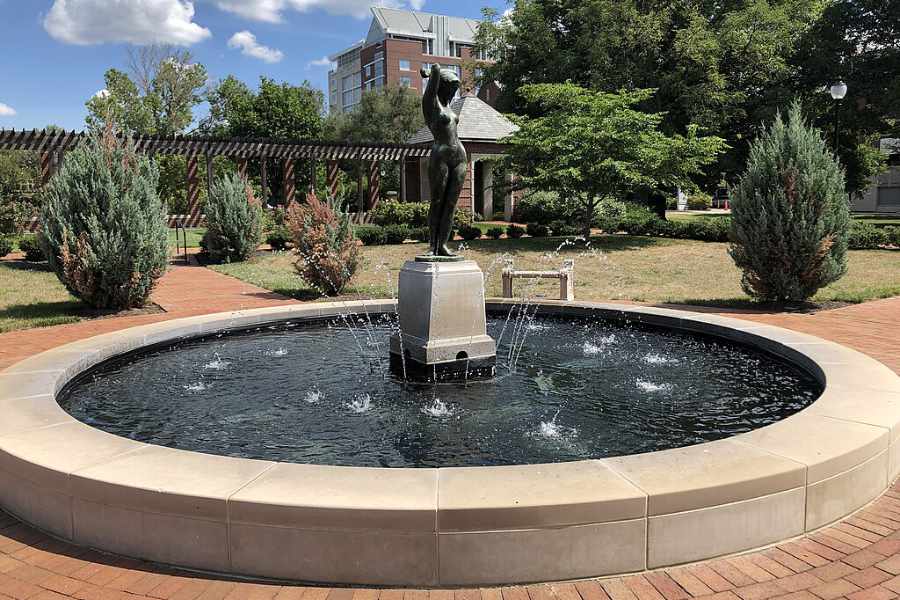’Til Death Do Us Part
A Naptown Tale in Seven Parts
by Altimexis
Prologue
Enough is Enough — Cliff
My foster parents were hovering over me with obvious looks of worry on their faces. How long I’d been in the hospital this time, I wasn’t sure. It might have been days, or even weeks — I’d just been so out of it for a while. My throat still hurt from having been intubated and on a ventilator. Apparently, it had been touch and go for a while and, even still, it was hard to catch a full breath. I felt so weak, and needed help with everything. Even the act of getting on and off a bedpan to take a shit left me feeling like I’d run a marathon.
At that low moment, one of my doctors entered the room and started talking to my parents. It was Dr. Whitcomb, my AIDS doctor. She talked as if I wasn’t even there. I absolutely hated that. I’m fourteen years old, for Christ sake — damn near an adult! So why won’t they treat me like one? I really missed Dr. Rick, but my HIV was now resistant to just about every anti-HIV drug out there, and so he referred me to Riley Hospital for Children at the Medical Center, where I could get extra-specialized care. God I hate hospitals.
“Well, we managed to stop the pneumocystis pneumonia in its tracks — this time,” Dr. Whitcomb began, “but it was touch and go for a while. So long as his CD4 count remains below 200, he’s going to continue to be susceptible to opportunistic infections. It’s only a matter of time before he gets another pneumonia, or CNS lymphoma, or Kaposi’s Sarcoma, or PML, or HIV encephalopathy, or any of a host of other diseases. His is one of the most resistant cases of HIV I’ve ever treated.”
“How about trying a bone marrow transplant?” Mom asked.
“Cynthia, I know where you’re going with this,” Dr. Whitcomb started to answer, “but as you know, Cliff doesn’t have any living relatives, so we’d have to try to find an unrelated donor who’s a near perfect match — even then, treating someone with HIV isn’t like treating one of your leukemia patients. If we wipe out Cliff’s immune system completely, it still wouldn’t help. HIV infects the nervous system, too. It can survive in glial cells, only to reinfect the T4 lymphocytes produced by the transplanted marrow. On top of that, the immune suppressant drugs used to prevent rejection, or more correctly a graft versus host reaction, would only allow his HIV and any opportunistic infections to run rampant.”
“Could you put that in plain English?” Dad asked.
“Tom, what Cynthia was suggesting is to use a strategy she uses for treating her leukemia patients. Since leukemia is a cancer of the bone marrow, it can be treated by using powerful chemotherapy to destroy the bone marrow. This wipes out the cancer, but it leaves the body without any way to replenish its blood cells. We then do a bone marrow transplant to replace the cells needed to make new blood cells, but the patient has to take drugs the rest of their life to prevent rejection — rejection of the patient’s own body by the immune cells from the transplant.
“The trouble with using this strategy in HIV is that, although we can destroy the bone marrow and all of the T4 lymphocytes and the HIV they harbor, HIV doesn’t just infect the bone marrow and blood stream, but it also infects the brain, and we can’t destroy the brain without killing the patient.”
“Oh,” was all Dad said. “What about other experimental treatments?” he asked.
“Unfortunately,” she answered, “Cliff doesn’t qualify for any protocol that’s out there, and believe me, I’ve done an exhaustive search for anything that he might be eligible for. There is a remote possibility we could get some HIV drugs that haven’t completed the FDA approval process under ‘compassionate use’ restrictions, but there aren’t many drugs in the pipeline. The FDA has an expedited process for HIV drugs, so most of what’s in the pipeline is highly experimental and could make him worse.
“The one thing I might suggest is that we contact the National Institutes of Health. Sometimes we can find a researcher at the NIH Clinical Center who is willing to admit someone for experimental study off protocol. They probably can’t provide a cure, but they might be able to buy some time.”
“No!” I tried to shout, but it came out as barely a whisper. I was pissed off that they were ignoring me.
The three adults in the room seemed shocked that I’d spoken. Maybe they finally realized that they’d been talking as if I weren’t there, and I guess they really did forget that it was me they were talking about.
Mom and Dad came up to me, and Mom took my hand and asked, “What is it, Cliff?”
“I don’t want to be poked and prodded any more. If there’s a promising new treatment we can try, fine, go ahead. If something can really be learned from me that might help others, as long as it’s not painful, I’m willing to let them study me, but I don’t want to go through any more treatment if it’s only gonna make me suffer. Some people can take it, but I can’t. I just want it to be over.
“Mom, Dad, there’s only one thing I really want. I don’t want to die an orphan. Please, please adopt me. If you really care about me, do it before it’s too late. If you can take the time to visit me in the hospital, surely you can find the time to go to court to make it legal. That’s all I need — that’s all I want.
